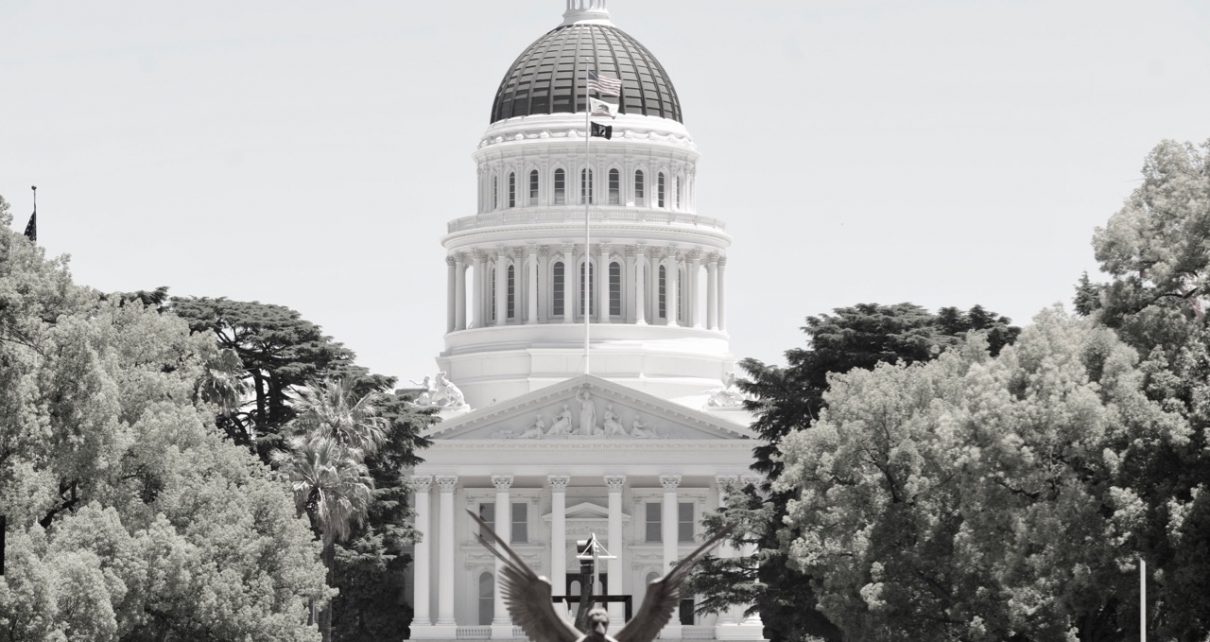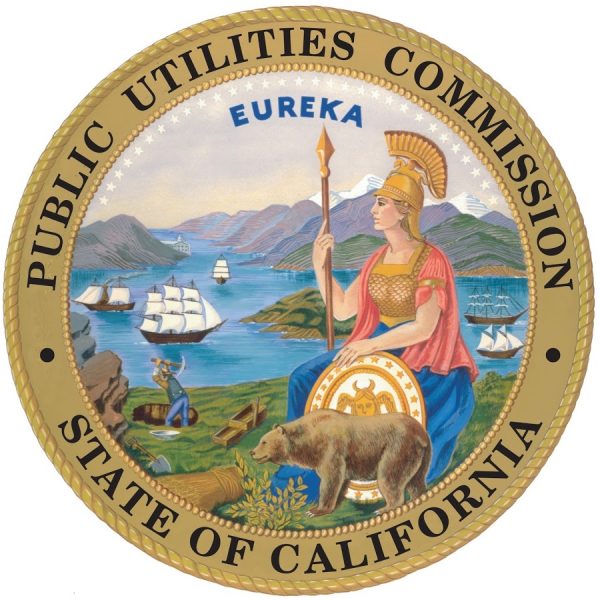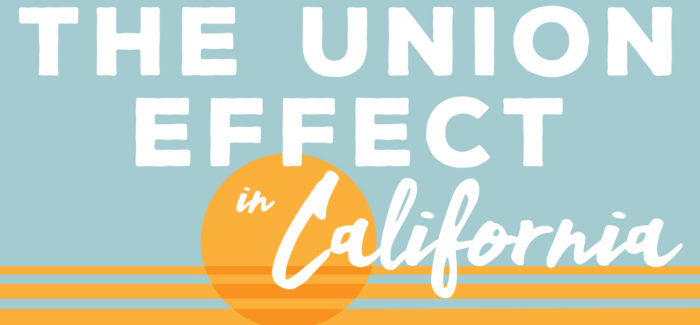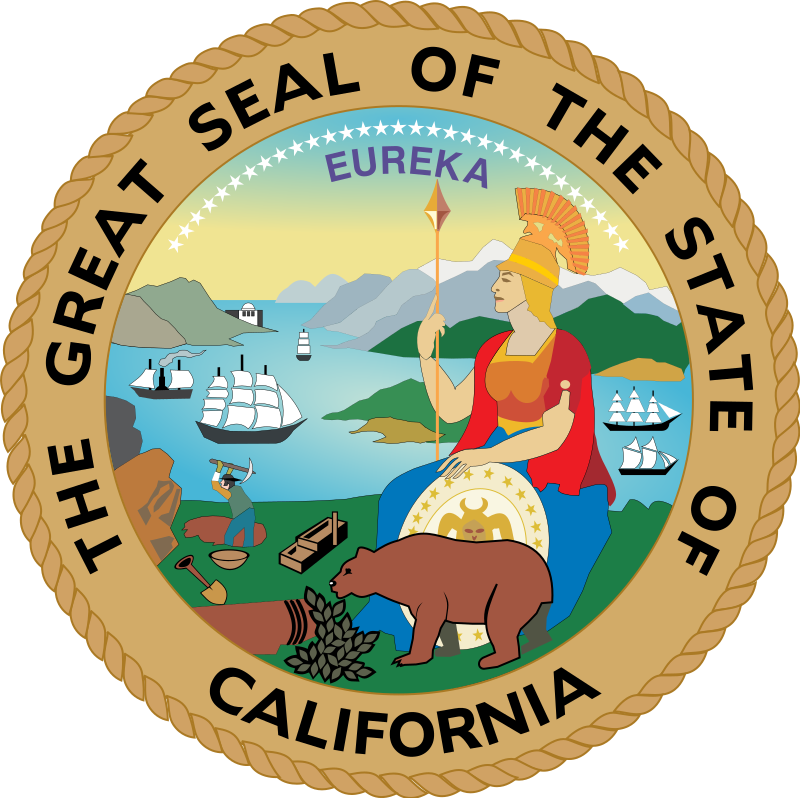
California State Capitol. (Photo: Kevin Sanders for California Globe)
‘Public Information’ to Promote New Taxes, Paid for by Taxpayers
‘Local governments cannot directly finance campaigns to win voter approval of new taxes’
By Edward Ring, September 1, 2020 6:59 am
Did you know your taxes are being used to advocate for more taxes? Well, not exactly. It’s against the law for public agencies to engage in “advocacy.” The people running these agencies who want to raise your taxes may only spend public funds in order to “communicate” with you about their proposals. And so they “communicate” good and hard. And then you vote.
An example of this, and there are many, is the City of Fullerton.
To cope with a projected $7.9 million deficit, the Fullerton City Council has approved a 1.25 cent sales tax increase, which voters will either approve or reject this November. The city expects to raise $25 million per year through this tax. At first glance that appears to be overkill, but first glances can be deceptive.
For starters, nobody knows how far revenue will drop. The pandemic shutdown is entering its eighth month with no end in sight. And while tax revenue falls across the state, pension costs continue to rise. For Fullerton, this is documented in the CalPERS actuarial reports for the city’s miscellaneous and safety employees. These reports, the most recent available, were released in July 2019, well before COVID-19 burst the global investment bubble.
The reports show that Fullerton was already pouring $25 million into CalPERS in the current fiscal year, an amount projected to rise to over $33 million by 2025. And with 70 percent of that going into public safety pensions that were only 64 percent funded as of June 30, 2018, who knows how much those payments are going to rise.
The initial intention of the city council was to propose all of the funds raised by a sales tax increase would go to pay for new and upgraded infrastructure, but a special infrastructure tax would require a 2/3 approval by voters, and the city’s polling indicated that was an unlikely outcome.
Which brings us back to the topic of cities using taxpayers money to research voter sentiment, which they then use to tailor “public information campaigns” to “educate” voters on their new tax proposals.
When Do “Public Information Campaigns” Become Political Campaigns?
In his syndicated column entitled “Local tax hikes cleverly packaged,” two years ago, Dan Walters wrote “Local governments cannot, by law, directly finance campaigns to win voter approval of new taxes. However, local officials can – and quite often do – hire consulting firms to test voter sentiment in advance, design tax proposals to give them the best chance of winning approval, and design supposedly educational mailers and other materials that portray the taxes in positive terms.”
The difference should be obvious, but in practice it’s not. When you engage in a political campaign, you are explicitly supporting a particular candidate or ballot measure. When you are “communicating,” you are compelled to limit yourself to presenting objective facts and information to the public; you cannot take a stand for or against a candidate or ballot measure.
The problem arises because California’s cities and counties are so desperate to raise taxes and secure additional bond financing, their taxpayer-funded “communications” efforts vs. political campaigning is a distinction with almost no difference. After all, it is merely informative to tell voters that the city needs more money to hire more police and firefighters so octogenarian widows aren’t sexually assaulted in their burning houses. These sorts of messages are not political ads, they’re just “communications.”
And through that massive loophole pours countless millions of taxpayers money every election season, out of city or county coffers and into the hands of communications consultants.
Walking this fine line requires cities to make sure they communicate without advocating. But why on earth would a city council spend city funds to communicate information that would discourage voters from voting in favor of a tax increase that they have themselves approved for the ballot?
Fullerton, unsurprisingly, wants to “communicate” with voters about their proposed sales tax increase. To manage their communications, they have accepted a proposal from TBWBH Strategies, a “non-partisan strategy and communications consulting firm specializing in bond, tax and other public finance ballot measures supporting public programs, services and facilities.”
On the homepage of TBWBH’s website, note how they carefully they have worded the description of their primary services, which they characterize as “Revenue Measure Consulting for Public Agencies.” Notice that nowhere does this description actually say they engage in advocacy:
“TBWBH Props and Measures is a strategy and communications consulting firm specializing in developing revenue measures for the ballot and implementing informational communication strategies to meet your funding needs. Our work has generated billions in revenue for quality public services, programs, facilities and infrastructure in communities throughout California and the nation.”
If you scroll a bit further down TBWBH’s homepage, after a slide deck that depicts the many sorts of public agencies that TBWBH works with, there is a description of additional services they provide, characterized as “Winning Revenue Measure Campaigns.” The description reads:
“TBWBH Props and Measures also advises advocacy campaigns supporting revenue measures to develop and implement strategies that secure the votes needed to win. Even on tough supermajority revenue measures, we maintain a win rate of over 90%.”
All of this is perfectly legal. To engage in a bit of hyperbole, merely to make perfectly clear what’s really happening here, city councils hire firms like TBWBH to do “revenue measure consulting” that result in taxpayer funded “information communications strategies,” then the public sector unions who arguably control these city councils – unions that need all that money to raise their pay and fund their pensions – also hire firms like TBWBH, where the advocacy side of the house wages “winning revenue measure campaigns.”
To keep up appearances, one would expect two firms to be hired. One by the city. A different one by the unions. But who knows? And why bother, if it’s all legal?
Do Public Agencies Ever Cross the Line into Advocacy?
The somewhat ambiguous criteria for what constitutes “advocacy” renders this an extremely difficult question to answer. But sometimes public agencies and their communications consultants cross a line obvious enough to earn them a slap on the wrist. But it doesn’t happen very often, and the consequences are minimal.
For example, on August 21 of this year, Los Angeles County settled a claim that it used tax funds to campaign for tax hikes. As reported by LAist, “In 2017, L.A. County spent nearly $1 million in public funds on a campaign to pass Measure H, a quarter-cent increase in the sales tax to fund new services for homeless people. It blanketed radio and TV airwaves, and ran print ads in newspapers in English and Spanish with the slogan ‘Real Hope, Lasting Change.’ Now, county taxpayers are on the hook for another $1.35 million to settle legal complaints about the campaign, based on state law which says governments may not spend taxpayer funds to advocate for a tax increase.”
The scope of this ruling is laughable. Measure H, which was a voter-approved 1/4 cent sales tax increase, will generate an estimated $355 million a year for ten years to fight homelessness. As an aside, that is more than enough money to cure homelessness in Los Angeles County if they’d restore laws and penalties to curb vagrancy, petty theft, and public intoxication, and build supervised tent shelters in inexpensive parts of the county. But instead, anything goes in woke Los Angeles, and corrupt developers are making billions, building “homeless supportive housing” at an average cost of $500,000 per unit. Measure H, like most homeless initiatives in woke locales across America, is a lucrative scam for developers and a magnet for more homeless. This is a failed model in a failing county.
To the point, however, a one-time $1.35 million settlement for violating campaign finance laws amounts to nothing, when the fruits of the illicit advocacy campaign total $355 million per year.
The plaintiff in the lawsuit leading to the settlement with Los Angeles County was the Howard Jarvis Taxpayers Association. Jon Coupal, HJTA president, was quoted in LAist saying that next time “We’re going to put bounties on these individuals who engage in this activity.”
When asked to clarify what he meant by that, Coupal, in an email, said:
“we acknowledged that, despite the record fine imposed against LA County, some public entities might still calculate that such fines are worth the return on investment. For that reason, HJTA will, in the most egregious cases, pursue personal liability against the elected officials and public employees who authorize such illegal expenditures. Such a remedy has been recognized by the California Supreme Court as a legitimate penalty.”
Watch out, public agencies. The watch dogs are going to bite harder next time. And they are watching Fullerton very closely.
When reached for comment on the common practice of public agencies using taxpayer sourced funds to “communicate” to voters about tax measures they have proposed, Jon Fleischman, a political strategist with Fleischman Consulting Group and the publisher of the FlashReport, had this to say:
“This practice of spending taxpayer dollars to hire professional public relations firms to advocate for the passing of tax increases is pure corruption. There is an appropriate expectation that when measures are before the voters, those who support and oppose them will raise money and spend money to influence voters, and that those activities will be publicly reported. Here you have voters who do not support higher taxes having their own tax dollars used to influence the outcome of the vote, all while shielding this electioneering from public disclosure as campaign related expenditures.”
Steps to Prevent “Public Education” That Supports New Taxes
The California Policy Center issued a policy brief in 2017 that included sample language for a local ordinance that would make it much harder for public officials to engage in “education” campaigns relating to new tax and bond proposals. The operative paragraphs from that sample ordinance are as follows:
Article 1. This city/county will not use public money – either internally, through its own staff and treasury, or externally, through the hiring or use of outside vendors – to engage in public education; public opinion polling or studies; or communications intended or may seem to be intended to determine the outcome of political campaigns.
Article 2. This city/county will fully disclose and make available – online and in public meetings and in public places – any documents, including contracts, communications, or proposals with vendors and/or staff which touch on public education; public opinion polling or studies; or communications which might seem to a reasonable person designed to determine the outcome of political campaigns.
Article 3. Every city/county official – elected, appointed or in any way employed with this city – is duty-bound to declare publicly a violation of this resolution.
Article 4. This city/county will never use force – including lawsuits – to derail an attempt to disclose the potential violation of this resolution.
The next few years are likely going to be more financially challenging for California’s cities and counties than the last few years. Higher taxes burden private citizens that are already harmed by the economic slowdown. Rather than raising taxes, local elected officials, and the public sector unions that influence them so much, need to work to make government more efficient. It can be done.
- Ringside: Can Energy and Water Interests Find a Common Agenda? - February 26, 2026
- Ringside: What Will California Gas Prices Do in 2026? - February 19, 2026
- Ringside: Large Scale Desalination Belongs in California’s Water Strategy - February 12, 2026





The shamelessness of these governments using our tax dollars to promote their own tax measures with “information campaigns” of expensive four-color brochures and refreshment-laden special town halls ostensibly about other issues that end up looking like vacation timeshare sales hustles has always amazed me. Sometimes in my town there have been rumors of even more sinister thumbscrews.
I certainly hope there will be more biting back on this as the free money runs out but I fully expect to continue receiving the four-color brochure mailings in my town for the foreseeable future. They don’t care if there is no money in the bank. In their mind it is for a good cause, even if the “winnings” are all spent on unnecessary baubles that catch their eye and put them in the kind of debt they can never dig themselves out of.
Trumpist propaganda
The article is Trumpist propaganda? What are you talking about?